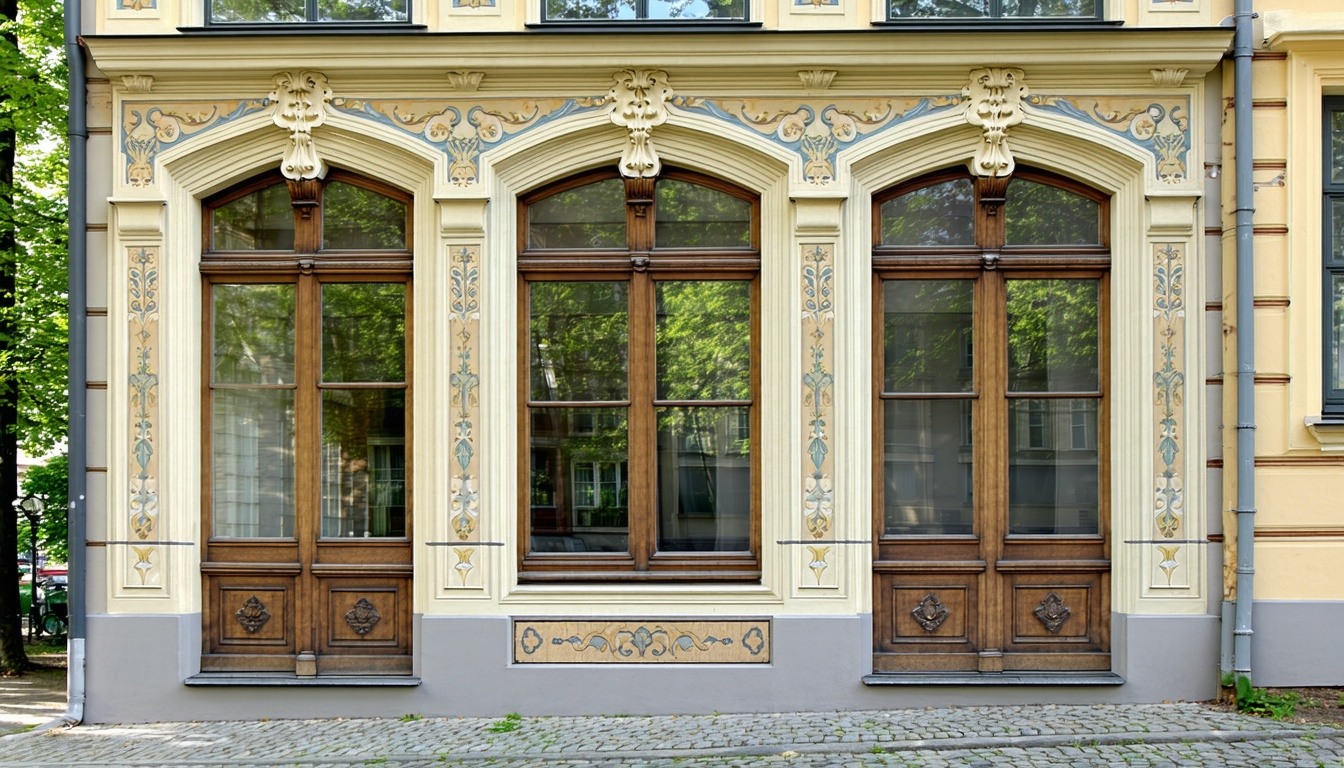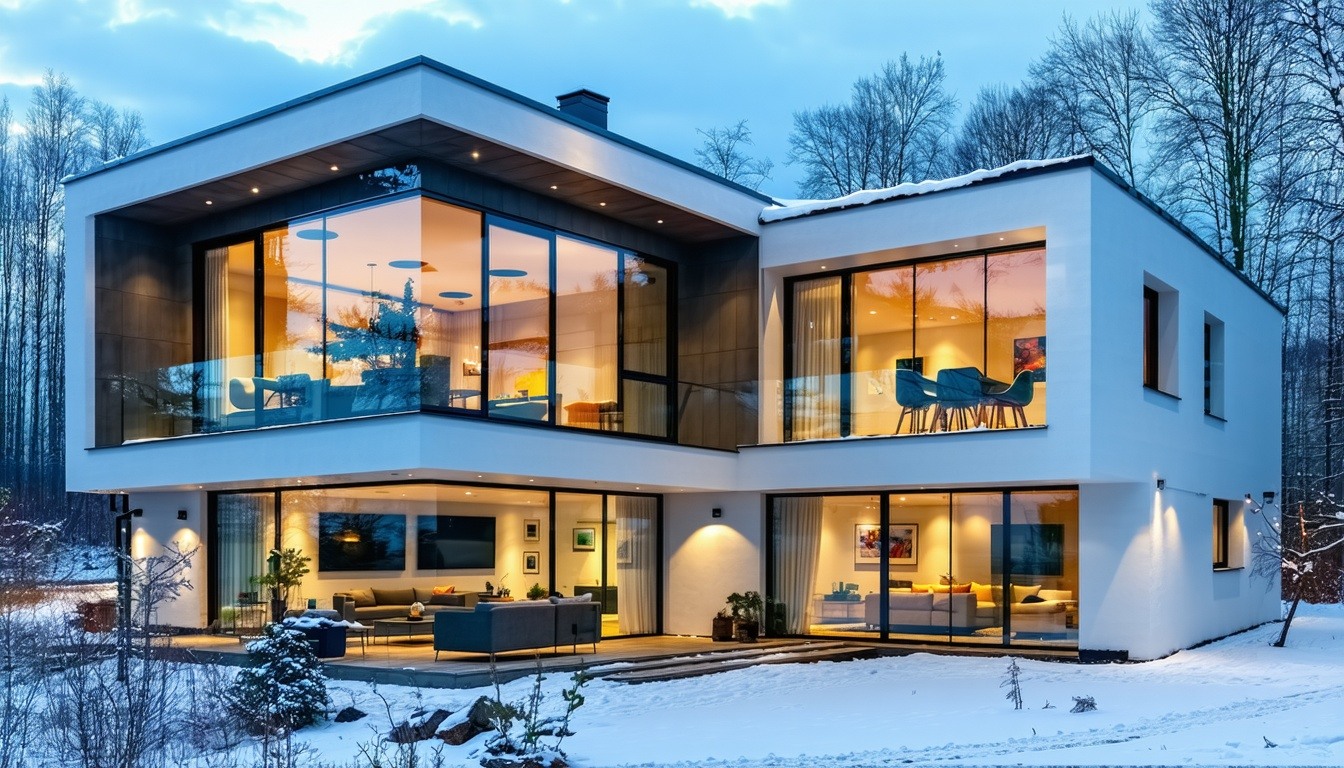Latvia is home to countless architectural treasures—from ornate Art Nouveau façades in Rīga to centuries-old wooden homes in small towns. Preserving these historic buildings while improving comfort and sustainability has become...
LandVac Vacuum Glass: Exceeding Latvia’s Energy Standards
How LandVac Vacuum Glass Meets and Exceeds Latvian Building Energy Standards (LBN 002-19, Nearly Zero-Energy Building (NZEB) Regulations)
Latvia has strict energy efficiency regulations that align with EU energy directives, ensuring that new and renovated buildings are highly insulated and energy-efficient. LandVac vacuum glazing is a cutting-edge solution that meets and exceeds these standards in several key ways:
1. Ultra-Low U-Values for High Thermal Performance
- LBN 002-19 sets stringent requirements for heat transfer in building envelopes, with a focus on minimizing energy loss.
- LandVac vacuum glazing achieves a U-value as low as 0.4 W/m²K, outperforming double glazing and matching or exceeding triple glazing efficiency.
- This helps buildings retain heat in winter and stay cool in summer, reducing energy demand for heating and air conditioning.
2. Compliance with Nearly Zero-Energy Building (NZEB) Requirements
- Since 2021, Latvia has required all new buildings to comply with NZEB standards, meaning they must use very little energy and rely on renewable sources.
- LandVac vacuum glazing reduces heat loss and energy consumption, contributing to lower heating loads and helping buildings meet NZEB targets.
- Its thin profile (8.3mm – 25.1mm) allows architects and developers to create highly insulated yet lightweight energy-efficient structures.
Enhancing Airtightness & Reducing Thermal Bridging
- LBN 002-19 emphasizes airtightness to prevent heat leakage.
- LandVac’s hermetically sealed vacuum chamber eliminates convection and conduction heat loss, preventing drafts and cold spots near windows.
- Unlike traditional triple glazing, it doesn’t require thick frames, reducing thermal bridging and increasing overall energy efficiency.
Optimized for Passive House & Green Building Certifications
- LandVac vacuum glazing supports Passive House and Miljöbyggnad (Swedish Green Building Certification), which is recognized in Latvia.
- By minimizing heat loss and improving building insulation, LandVac helps properties achieve better energy ratings and qualify for green building incentives.
Supports Government Incentives & Energy Grants
- Latvia offers financial incentives for energy-efficient renovations and new constructions, particularly under EU-funded sustainability programs.
- LandVac vacuum glazing qualifies as a high-performance energy-saving technology, making it eligible for tax reductions and energy efficiency grants.
Conclusion: Future-Proofing Latvian Buildings with LandVac
By combining superior insulation, airtight sealing, and a lightweight design, LandVac vacuum glazing helps Latvian buildings exceed the requirements of LBN 002-19 and NZEB regulations. It enables homeowners, businesses, and developers to reduce energy consumption, lower costs, and create sustainable, future-proof buildings.
LandVac Vacuum Glazing Latvia offers an advanced solution for meeting and exceeding the country’s strict energy efficiency standards. With ultra-low U-values, superior airtightness, and a slim, lightweight design, it helps buildings achieve NZEB compliance while reducing energy costs. Whether for new constructions or renovations, LandVac is the ideal choice for sustainable, high-performance glazing. Learn more about LandVac Vacuum Glazing Latvia here.
From the blog
Explore the latest insights on energy-efficient glazing, building regulations, and sustainable construction. Stay informed with expert articles on how LandVac vacuum glass enhances insulation, reduces energy costs, and meets strict EU and international standards. Whether you're an architect, developer, or homeowner, our blog provides valuable knowledge to help you build smarter, greener, and more efficient spaces.

Energy-efficient windows, Double glazing alternatives, Sustainable windows, Energy-saving windows, Vacuum glazing benefits, Thermal insulation windows, Eco-friendly glazing, Noise reduction windows, Historic building windows, Advanced window technology, Green building solutions
Replacement Windows in Historic Buildings in Latvia: Why LandVac Vacuum Glazing Is the Ideal Solution

Energy-efficient windows, Double glazing alternatives, Sustainable windows, Energy-saving windows, Vacuum glazing benefits, Thermal insulation windows, Eco-friendly glazing, Noise reduction windows, Historic building windows, Advanced window technology, Green building solutions
Improve Thermal Performance of PVC Windows in Latvia’s Modern Buildings with LandVac Vacuum Glazing
Modern architecture in Latvia places a strong emphasis on sustainability, energy efficiency, and visual appeal. PVC windows are a common feature in newer homes and commercial buildings thanks to their affordability and sleek...

Energy-efficient windows, Double glazing alternatives, Sustainable windows, Energy-saving windows, Thermal insulation windows, Eco-friendly glazing, Noise reduction windows, Historic building windows, Advanced window technology, Green building solutions
Improve Thermal Performance of PVC Windows in Lithuania with Vacuum Glazing
PVC windows are widely used in Lithuanian homes and apartment buildings because they’re affordable, practical, and low maintenance. But as the years go by, their energy efficiency often decreases — especially if the original...

